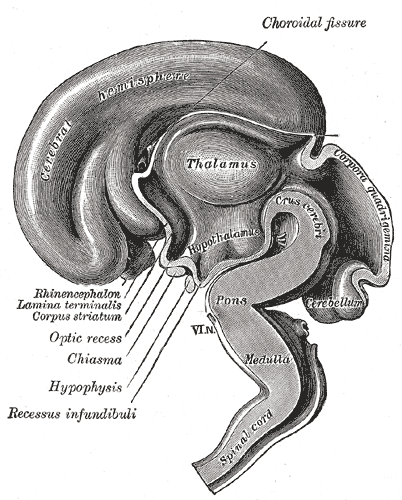|
Syndromic Obesity
Syndromic obesity (SO) refers to obesity when it occurs as part of a syndrome, often along with intellectual disability. Often syndromic obesity is mediated by abnormal development of the hypothalamus (see hypothalamic obesity). Known types of syndromic obesity include some types of monogenic obesity and: *Prader Willi syndrome *Bardet-Biedl syndrome *Alstrom syndrome *16p11.2 deletion syndrome References {{reflist Syndromes with obesity ... [...More Info...] [...Related Items...] OR: [Wikipedia] [Google] [Baidu] |
Syndrome
A syndrome is a set of medical signs and symptoms which are correlated with each other and often associated with a particular disease or disorder. The word derives from the Greek σύνδρομον, meaning "concurrence". When a syndrome is paired with a definite cause this becomes a disease. In some instances, a syndrome is so closely linked with a pathogenesis or cause that the words ''syndrome'', ''disease'', and ''disorder'' end up being used interchangeably for them. This substitution of terminology often confuses the reality and meaning of medical diagnoses. This is especially true of inherited syndromes. About one third of all phenotypes that are listed in OMIM are described as dysmorphic, which usually refers to the facial gestalt. For example, Down syndrome, Wolf–Hirschhorn syndrome, and Andersen–Tawil syndrome are disorders with known pathogeneses, so each is more than just a set of signs and symptoms, despite the ''syndrome'' nomenclature. In other instances, a synd ... [...More Info...] [...Related Items...] OR: [Wikipedia] [Google] [Baidu] |
Intellectual Disability
Intellectual disability (ID), also known as general learning disability in the United Kingdom and formerly mental retardation,Rosa's Law, Pub. L. 111-256124 Stat. 2643(2010). is a generalized neurodevelopmental disorder characterized by significantly impaired intellectual and adaptive functioning. It is defined by an IQ under 70, in addition to deficits in two or more adaptive behaviors that affect everyday, general living. Intellectual functions are defined under DSM-V as reasoning, problem‑solving, planning, abstract thinking, judgment, academic learning, and learning from instruction and experience, and practical understanding confirmed by both clinical assessment and standardized tests. Adaptive behavior is defined in terms of conceptual, social, and practical skills involving tasks performed by people in their everyday lives. Intellectual disability is subdivided into syndromic intellectual disability, in which intellectual deficits associated with other medical and be ... [...More Info...] [...Related Items...] OR: [Wikipedia] [Google] [Baidu] |
Hypothalamus
The hypothalamus () is a part of the brain that contains a number of small nuclei with a variety of functions. One of the most important functions is to link the nervous system to the endocrine system via the pituitary gland. The hypothalamus is located below the thalamus and is part of the limbic system. In the terminology of neuroanatomy, it forms the ventral part of the diencephalon. All vertebrate brains contain a hypothalamus. In humans, it is the size of an almond. The hypothalamus is responsible for regulating certain metabolic processes and other activities of the autonomic nervous system. It synthesizes and secretes certain neurohormones, called releasing hormones or hypothalamic hormones, and these in turn stimulate or inhibit the secretion of hormones from the pituitary gland. The hypothalamus controls body temperature, hunger, important aspects of parenting and maternal attachment behaviours, thirst, fatigue, sleep, and circadian rhythms. Structure T ... [...More Info...] [...Related Items...] OR: [Wikipedia] [Google] [Baidu] |
Hypothalamic Obesity
Hypothalamic obesity (abbreviated HO or HyOb) is a rare condition that can be congenital or acquired. Congenital causes include Prader-Willi syndrome and mutations of LEP (leptin gene), LEPR, POMC, MC4R, and CART. It can also result from injuries to the hypothalamus either from trauma, therapeutic radiation, brain surgery, and especially craniopharyngioma and its treatments. Possible treatments include bariatric surgery and melanocortin 4 receptor agonists such as setmelanotide Setmelanotide, sold under the brand name Imcivree, is a medication used for the treatment of genetic obesity caused by a rare single-gene mutation. The most common side effects include injection site reactions, skin hyperpigmentation (skin patc .... References {{Obesity Risk factors for obesity Hypothalamus disorders Classification of obesity ... [...More Info...] [...Related Items...] OR: [Wikipedia] [Google] [Baidu] |
Monogenic Obesity
Monogenic obesity is excess weight caused by a mutation in a single gene, as opposed to syndromic obesity not tied to a single gene variation and most obesity, which is caused by multiple genetic and environmental risk factors. Monogenetic obesity mostly affects the hypothalamus and leptin–melanocortin system (see hypothalamic obesity). However, it accounts for less than 5 percent of severe obesity cases. Known mutations leading to monogenetic obesity include: *Leptin deficiency *Leptin receptor deficiency * Melanocortin-4 receptor (MC4R) *Proopiomelanocortin (POMC *Prohormone convertase 1/3 (PC1/3) *SIM1 Single-minded homolog 1, also known as class E basic helix-loop-helix protein 14 (bHLHe14), is a protein that in humans is encoded by the ''SIM1'' gene. Function SIM1 and SIM2 genes are homologs of ''Drosophila melanogaster'' single-minded (sim), ... * BDNF * NTRK2 References {{Obesity Classification of obesity ... [...More Info...] [...Related Items...] OR: [Wikipedia] [Google] [Baidu] |
Prader Willi Syndrome
{{disambiguation ...
Prader may refer to: * Andrea Prader (1919–2001) *Prader–Willi syndrome *Prader scale The Prader scale or Prader staging, named after Andrea Prader, is a coarse rating system for the measurement of the degree of virilization of the Sex organ, genitalia of the human body and is similar to the Quigley scale. It primarily relates to v ... [...More Info...] [...Related Items...] OR: [Wikipedia] [Google] [Baidu] |
